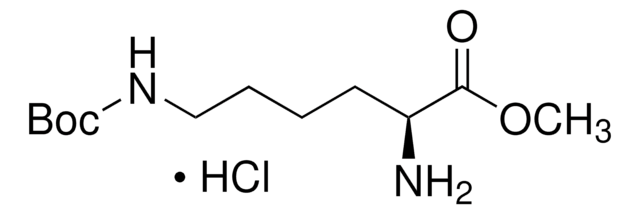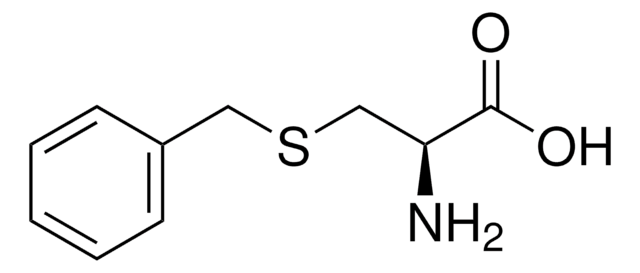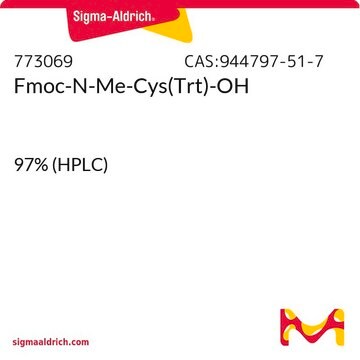467154
N-(tert-Butoxycarbonyl)-L-cysteine methyl ester
97%, for peptide synthesis
Sinónimos:
N-Boc-L-cysteine methyl ester
About This Item
Productos recomendados
product name
N-(tert-Butoxycarbonyl)-L-cysteine methyl ester, 97%
Quality Level
assay
97%
form
liquid
optical activity
[α]22/D +21°, c = 7.5 in chloroform
reaction suitability
reaction type: solution phase peptide synthesis
refractive index
n20/D 1.475 (lit.)
bp
214 °C (lit.)
density
1.143 g/mL at 25 °C (lit.)
application(s)
peptide synthesis
SMILES string
COC(=O)[C@H](CS)NC(=O)OC(C)(C)C
InChI
1S/C9H17NO4S/c1-9(2,3)14-8(12)10-6(5-15)7(11)13-4/h6,15H,5H2,1-4H3,(H,10,12)/t6-/m0/s1
InChI key
NJGIAKIPSDCYAC-LURJTMIESA-N
Categorías relacionadas
Application
Storage Class
10 - Combustible liquids
wgk_germany
WGK 3
flash_point_f
235.4 °F - closed cup
flash_point_c
113 °C - closed cup
Elija entre una de las versiones más recientes:
¿Ya tiene este producto?
Encuentre la documentación para los productos que ha comprado recientemente en la Biblioteca de documentos.
Los clientes también vieron
Nuestro equipo de científicos tiene experiencia en todas las áreas de investigación: Ciencias de la vida, Ciencia de los materiales, Síntesis química, Cromatografía, Analítica y muchas otras.
Póngase en contacto con el Servicio técnico










